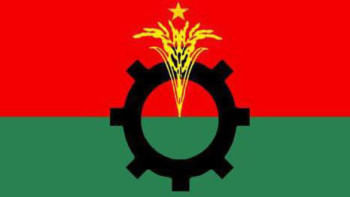Compensation for the crime victims

With the increasing emphasis on human rights and notion of restorative justice, awarding compensation to crime victims is being utilised in furtherance of more effective and compassionate criminal justice in countries around the globe. UN Declaration of Basic Principles of Justice for Victims of Crimes and Abuse of Power 1985 urges the member countries to incorporate provision for compensation to crime victims in their criminal justice system. In most of the countries, compensation is commonly awarded to victims of rush driving and road accidents which is also a crime under the Penal Code 1860 (section 338A) in Bangladesh.
However, awarding compensation to victims of crimes and rush driving is barely practiced in Bangladesh. In a few cases, the High Court Division (HCD) and criminal courts awarded compensation to crime victims or their families. But such practices are not developed in a coherent manner. Therefore, our judicial system lacks of a set of standards and guidelines for computation and awarding of such compensation. This vacuum has made the judges passive and reluctant in awarding compensation in criminal cases, even when the law empowers them to do so. In this context, the recent judgment of the HCD awarding compensation of Tk. 4.62 crore on Tareque Masud's death by a road accident sets a landmark example in promoting compensatory jurisprudence in Bangladesh. It is believed that this judgment will be lit as a beacon for the future court to award compensation to victims of road accidents as well as other crime victims.
In 2013, Catherine Masud filed a compensation case under section 128 of the Motor Vehicles Ordinance 1983 to the Manikganj Motor Accident Claims Tribunal. In 2014, the case was transferred to the HCD under Article 110 of the Constitution of Bangladesh on the ground of 'general public importance' (67 DLR 523). A division bench was constituted to try this case and finally delivered their verdict awarding an exemplary compensation to the victim's family in December 2017. The point here is that this provision of law under the Motor Vehicles Ordinance 1983 has provided avenue for thousands of victims of similar road accidents to claim compensation from the offenders, but it has been long unused and forgotten. Tareque Masud's compensation case will certainly create awareness in the minds of judges, lawyers and people that compensation from the concerned offenders in similar circumstances can be claimed and awarded.
Judges are well equipped to award compensation to crime victims under section 545 of the Code of Criminal Procedure 1898, section 15 of the Prevention of Oppression against Women and Children Act 2000, section 9 of the Acid Control Act 2002, sections 38 and 39 of the Children Act 2013, section 15 of the Prevention of Torture and Custodial Death Act 2013, section 28 of the Prevention of Human Trafficking Act 2012 (section 39 provides the scope to file civil case for compensation), section 16 of the Domestic Violence (Prevention and Protection) Act 2010, etc.
However, options for providing compensation largely remain unused perhaps due to the insensitivity of judges towards crime victims. Therefore, it is imperative that the passivity of the judges in awarding compensation to crime victims be broken. The judges have to act proactively with a sense of judicial activism so that the crime victims may get back a fearless and dignified life.
The writer is Lecturer in Law, Jagannath University.


 For all latest news, follow The Daily Star's Google News channel.
For all latest news, follow The Daily Star's Google News channel. 



Comments